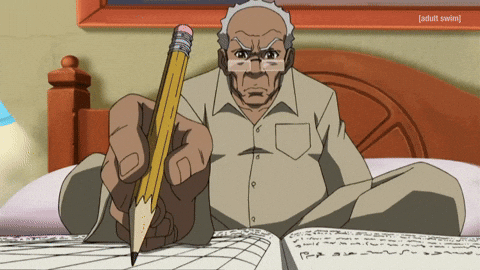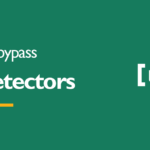You’ve been staring at a blank screen for hours trying to come up with ideas but…radio silence.
Now you close the laptop to come back later but still…nothing.
Chances are that you are battling a creative staleness called writer’s block.
If you have experienced this scary blankness, you are not alone.
Writers like Mark Twain and Shakespeare went through bouts of writer’s block during their prolific careers.
So how did they power through this obstacle?
Unfortunately, there is no definitive writer’s block cure. But you can follow some of the tips in this article to get your creative writing juices flowing once again.
What is writer’s block?
Writer’s block refers to a condition when a writer experiences creative stagnation that makes them struggle to come up with ideas — or complete an ongoing project.

Most creatives believe this is a genuine disorder, while people like Brad Meltzer believe that writer’s block is a made-up concept.
Regardless of your stance on writer’s block, if you’ve never experienced writer’s block, I am genuinely happy for you — and long may that continue.
But the rest of us struggle with this creative gridlock from time to time.
Signs that you are experiencing writer’s block
Before self-diagnosing as someone going through writer’s block, ask the following question:
Am I experiencing writer’s block or is it burnout from writing the same repetitive copy?
Since writer’s block doesn’t have any specific definition or diagnosis, I have gathered the common signs that other writers have shared about their experience.
- Frustration: whenever you open the laptop and get that “ughhhhh!” feeling without any ideas flowing, you will struggle to power through the writing task before you.
- Lack of motivation: sometimes, you just feel a lack of inspiration to write anything beyond the title. Your creative animal just seems to have taken a day (or month!) off.
- Fogginess: If you are trying to gather ideas, but they are all jumbled up in your head incoherently, you are probably going through writer’s block.
What causes writer’s block?
Identifying the cause of your creative block helps you battle it head-on. From the accounts of experienced writers in different genres, writer’s block can come from one or more of the following:
Perfectionism
As creatives, the drive to produce the ultimate product every time can become addictive. We want that paragraph to sound pitch-perfect from the first draft.
Unfortunately, you cannot be perfect every time. And pushing yourself to create that ideal copy or content will end up being fruitless.
Imposter syndrome
You probably just landed a massive project off the back of your stellar performance on a previous one.
Now, the responsibility weighs so much on your shoulders that you start overthinking yourself into creative prison.
Am I good enough? Will I mess this up? Damn! What if I mess this up?
When imposter syndrome kicks in, you will struggle to maintain the same creative output as before.
Burnout
Copywriting is often repetitive: you get to write similar copies every day.
But if you don’t diversify your routine, you will suffer burnout, eventually leading to writer’s block.
Fatigue
Hectic schedules can affect your ability to produce top-quality content.
If you are fatigued after a crazy day at work, you will struggle to whip up those money-making ideas for your content.
Fear of rejection
This symptom is often accompanied by imposter syndrome.
What if I get rejected?
And once the fear and doubt creep into your head, your creative engine stalls, and you enter the writer’s block realm.
Lack of information
Well, it is difficult to write something if you don’t have enough information. And when the deadline is imminent, your idea bank might betray you.
Distraction
Your thoughts can jumble up the ideas in your head.
Physical distractions like traffic sounds and noisy neighbors can also derail your creative process.
How to beat writer’s block
Overcoming writer’s block can be tricky since you are fighting a faceless monster.
It is all in your head!
Even after identifying the cause of your writer’s block, avoiding it is still a massive challenge.
But don’t let it faze you. Use some of these tried-and-tested techniques to free yourself of the block.
1 – Identify the problem
Yeah, it sounds like something from a cheesy motivational ad, but spotting the cause of the problem helps you battle it.
- Has your creativity stalled because of burnout?
- Are you exercising properly?
- Are your notifications going crazy?
Once you place your thumb on the problem, you can now start thinking of counteractive measures to restore your creative mindset.
2 – Give yourself a break
What is the point of staring at the laptop without any progress? Just close it and head out for a walk — or take a quick nap.

If your block results from fatigue, the intermission will help you regain some energy. You can also move your writing task to coincide with your productive hours.
3 – Change your scenery
A quick trip and change of scenery can do wonders for your creativity. If you are working on a personal project, you can abandon it and take a vacation.
But for writers on the company’s dime, you might not want to use up your paid vacation or sick days.
So, you should go for a walk in the park or somewhere with a different vibe.
Also, taking your work to a low-key coffee shop with ambient lighting might just provide the much-needed spark for your creativity.

Alternatively, you can create multiple workspaces at home with alternating vibes and switch whenever you need to change the environment.
4 – Add some music to the mix
Experts have confirmed that music can help you escape writer’s block. You can find writing playlists on Spotify or create one to your taste.
Classical music and jazz playlists can create a distraction-free working environment to spark your creativity.
That said, some writers prefer absolute silence when working on new content, while others prefer white noise from natural or digital sources.
Whatever your preference, you can find music to help you power through writer’s block.
5 – Doodle on paper
“You can’t think yourself out of a writing block; you have to write yourself out of a thinking block.”
— John Rogers
Yes, this actually works.
Experts at Headspace have established that writing by hand improves your cognitive ability by immersing you in the process.
So, take a break from the screen and try doodling on paper.
Don’t even think about what you are writing. Just let the ideas flow to you and put them down on paper.
Oh, and forget about punctuation, grammar, and structure.
Once the session is over, examine the paper and see if anything of value comes up — this technique is called freewriting.
If you don’t want to use paper, you can practice freewriting on your computer.
6 – Feed off others’ energy
You probably have a group of writers or creative friends. When you are going through the wringer, try reaching out to them.
Being around people can re-ignite your creativity.
To that end, invite your friends to hang out or visit your favorite coffee shop — and chit-chat with strangers.
If you don’t fancy meeting people, watch motivational content on YouTube or Vimeo.
The infectious energy of people like David Goggins can be the catalyst to break the chains of writer’s block.
7 – Conduct a social media detox
Yeah, I know that I just told you to watch something on YouTube.
But hear me out:
Watching a quick video online might be the kick you need — and that’s if you don’t go down the YouTube rabbit hole.
And even if you do, consider this a change of scenery. Those algorithms, eh?!
If possible, just turn off the notification on your devices and keep your phone in a different room.
You will be tempted to grab your phone and check your feed — we are digital zombies, after all.
Try your best to resist this urge during your creative hours.
Experts like Cal Newport claim that you don’t need social media at all — and he makes a compelling case.
But I won’t go that far tho. A properly-timed social media detox is all you need to beat your writer’s block.
8 – Write without editing
Think about it; making corrections as you write disrupts your rhythm.
And the last thing you want to see when battling writer’s block are those annoying squiggly lines.
So, forget about editing. Abandon your craving for perfection; turn off the grammar checker and pound away on those keys.
If you are lucky, you will get over the lump within the first few paragraphs and restore your writing groove.
By the way, writing without editing improves your productivity by maximizing your writing speed.
9 – Break the tasks into small bits
The sheer size of a task can spin you into a cycle of panic.
How can I tackle this? Will I make the deadline?
This heightened level of anxiety leads to stress and can also cause writer’s block.
But with excellent time management skills, you can learn how to defeat writer’s block.
Break up the tasks into subtasks and rest between each one. Use delayed gratification to motivate yourself to do more.
10 – Meditate
Writers who can connect with their inner selves know how to overcome the writer’s block that plagues them.
All you need to do is close your eyes and focus on the task before you — or even something else.
You can use meditation routines and apps online to keep you focused.
Alternatively, you can just take a power nap free of any work-related thoughts.
Tools to help you overcome writer’s block
In your battle with writer’s block, you might need some digital, AI-powered assistance to overcome. Here are some tools in my
- Forums — Quora, Reddit, Medium
- Meditation apps — HeadSpace, Unplug, Insight Timer
- Time management apps — Todoist, TimeTree
- Concentration apps — Noisli, Engross
- Music apps — Spotify, iTunes, Google Music
- Communication apps — Slack, GroupMe
- Note-taking apps — Evernote, Notion
- Brainstorming apps — Contently, Lucid Chart, Mind42
- Creative writing apps — Scrivener, Ulysses.
Final words
I’ll leave you with a quote from Maya Angelou:
“What I try to do is write. I may write for two weeks ‘the cat sat on the mat, that is that, not a rat.’ And it might be just the most boring and awful stuff. But I try. When I’m writing, I write. And then it’s as if the muse is convinced that I’m serious and says, ‘Okay. Okay. I’ll come.'”
Writer’s block is a real battle that many writers experience during their careers. This creative slowdown often results from fatigue, perfectionism, distractions, and other factors.
But once you identify the cause of the writer’s block, you can use the tips and tools shared in this guide to battle it.
Who wrote this?
As the owner and editor of SomebodySays, Ugo Ezenduka shows readers the fundamentals of content writing and blogging to help them adapt to the ever-changing landscape.
He has collaborated with several IT and publishing companies to create articles and blog posts that customers crave. When he is not in front of a screen, Ugo can be spotted somewhere with a camera or on a football pitch.




